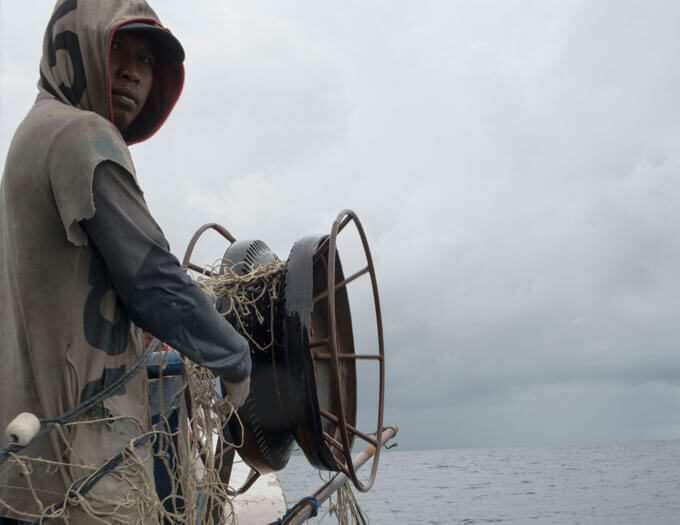It was difficult to decide where to begin with this blog. With countless articles, data, and statistics about how both legal and illegal fishing are depleting our ocean of fish stocks, it’s easy to get buried beneath the dismal facts. “No sushi left by 2048.” “78.9 million tons of fish & other marine fauna caught annually.” “75% of major marine fish stocks either depleted, overexploited or being fished to their biological limit.” With more than half of the global population depending on the ocean’s bounty for food, it’s difficult to find that balance.
Balance seems to be the common denominator when discussing the ocean’s relationship with others. It not only supports the diets of millions around the planet, but many coastal communities rely on the sea as an economic resource as well. Due to a variety of fishing practices, about 90% of large predatory fish stocks are already gone. This alone has the power to push the balance of the marine environment off kilter. Throw in the targeting of bottom dwellers and herbivorous fish and we not only lose species, but entire ecosystems as well. Then the question must be raised, how are we to maintain economical and ecological harmony with our ocean while not risking total collapse?
In order to reverse the effects of overfishing while maintaining the livelihoods of many coastal communities, we must act now. With sustainable fisheries management, we may begin to repair fish stocks, and in effect, coral reefs. Safe catch limits that are constantly reassessed, scientifically determined and responsibly caught by each fishery is a must. We need controls on bycatch to prevent unintentional killing and disposal of oceanic life not targeted; the implementation of marine protected areas and no-take zones in pristine and important habitats; finally the monitoring and enforcement of these ground rules.
Fortunately, operations like this already exist. Thanks to an array of ocean advocates like Sylvia Earle with her Mission Blue initiative, and the IUCN, about 2% of our ocean is now protected with the hope of another 28% by 2030. There are also many productive programs that teach fishermen how to reduce bycatch with simple tricks like boat speed and different net shapes; and procedures that discuss with them how certain fish are worth more alive than dead and to think about hanging up their fishing gear to become tour guides or other ocean advocates.
There are also choices and actions you and I can take on daily bases that make a difference. Simply by staying informed and reading recent articles about overfishing, knowing what we eat, with guides like this to help us make seafood choices with the lowest impact; and finally, by spreading the word. Remaining educated, we have the power to speak up and have our voices heard. By combining education, management, execution, and vigilant patrol these areas will begin to replenish, aiding in global fish population, coral reef health, and in effect, ocean and planet health as well.
With great passion, comes great responsibility.


